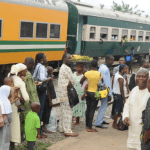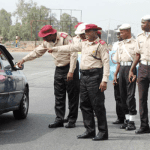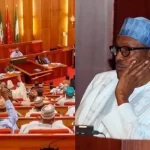After two attacks on Egyptian Churches left at least 45 dead and over a hundred more people injured week, a sombre mood has captured many of the country’s Christian minority.
The attacks which came as worshipers attended Sunday mass were the deadliest in recent memory for Egypt’s Christian minority, the largest in the Middle East.
Traditional Easter celebrations were scaled down around the country, most families staying home and breaking bread with friends and neighbours.
But in Egypt’s second largest city where the second bomb went off, Christians flocked to Alexandria’s Saint Mark’s Cathedral, the historic seat of the Coptic Pope, to attend prayers on Good Friday.
Rafiq Bishry, the head of the church’s organisational committee said they were surprised to find a large number of people attending the service.
“We expected that people would be too scared to attend prayers but there was no need for our expectations because there are a lot of people here and the numbers inside and outside of the church, as you can see, we did not expect. If you walk inside the church you’ll find a great number of people, and outside the church you’ll also find a great number of people. This is a clear message to the whole world that we are not afraid,” he said.
The attacks, claimed by Islamic State who have waged a low-level war against soldiers and police in Egypt’s Sinai peninsula, have stepped up assault on Christians, and warned of more attacks as it boasted killing 80 people in three church bombings since December.
Maha Ragaay avoided watching television on Palm Sunday, afraid of seeing the bloody images broadcast on local media of the aftermath of the bombs.
“I do not want (these attacks) to happen again, but I don’t feel that we’re doing anything to stop this. For us to really do something for all of this to stop, we need a lot of time, but so long as we still haven’t started on a course (for change) nobody is happy, everyone feels sadness. Maybe this fire inside us can be subdued if the people and the state, together, do something,” she said in an interview with Reuters Television.
A Coptic Christian teacher living in Cairo, Maha told Reuters she would be marking the occasion in a state of mourning for all those who had lost their lives.
Egyptian President Abdel Fattah al-Sisi’s government introduced a three-month state of emergency which gives it sweeping powers to act against what it calls enemies of the state.
Prime Minister Sherif Ismail said the step was essential to combating what he called terrorist groups bent on undermining the country.
Copts make up about 10 percent of the 92-million population of mostly Muslim Egypt and are the region’s largest Christian denomination, with a nearly 2,000-year-old history in the country.
Reuters











